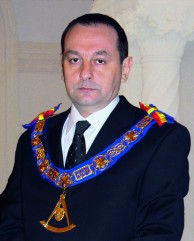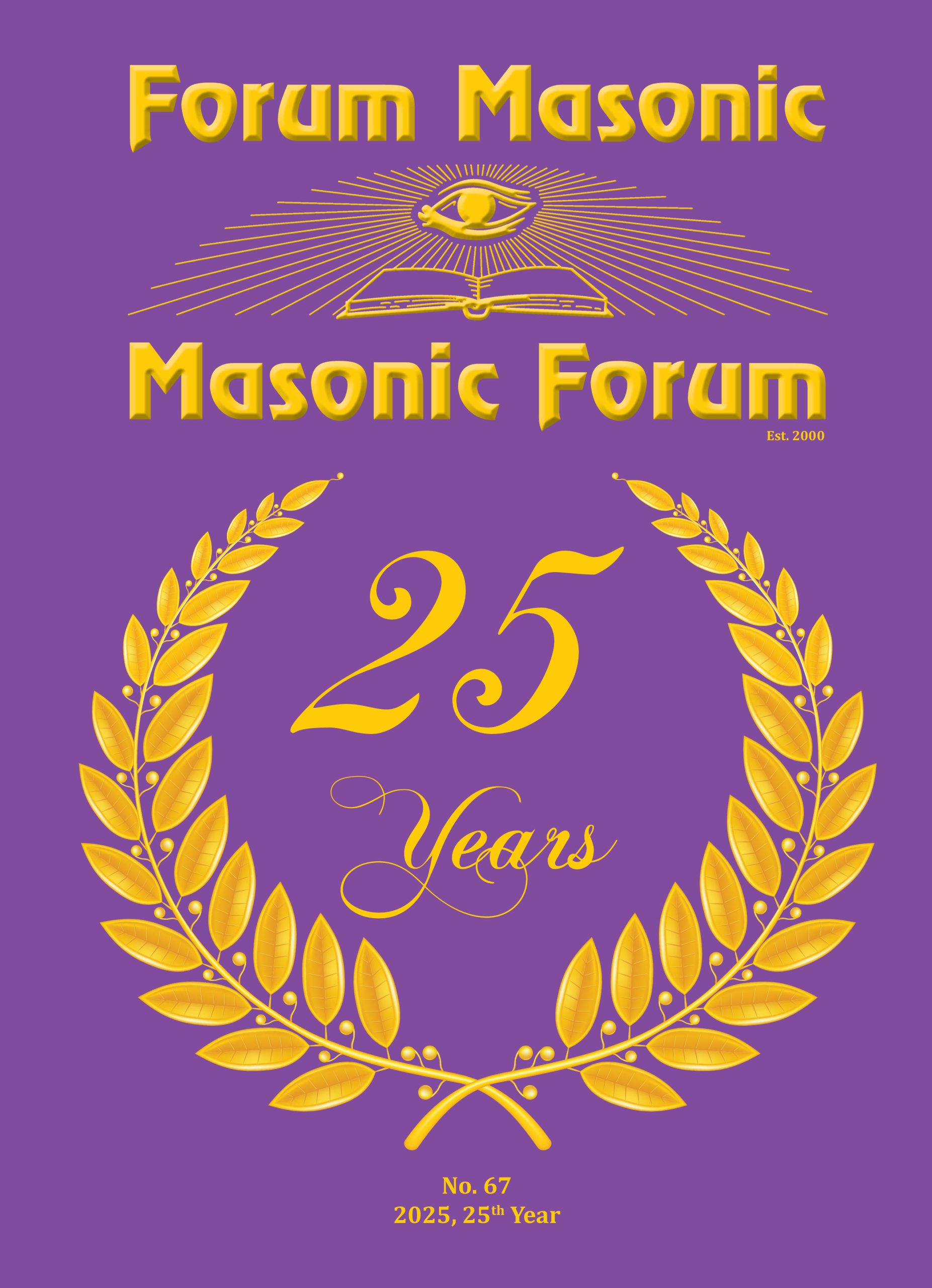EUGEN OVIDIU CHIROVICI
Past Grand Master, National Grand Lodge of Romania
Honorary Director, MASONIC FORUM Magazine
 Few organizations throughout their shorter or longer histories have been the target of prejudice as much as Freemasonry has been. Most observers consider that discretion – which some classify as a veritable mania of secrecy – that is constantly surrounding the activities of the lodges represents the principal motive: it is a thing of human nature to consider that behind closed doors must lie some potential danger.
Few organizations throughout their shorter or longer histories have been the target of prejudice as much as Freemasonry has been. Most observers consider that discretion – which some classify as a veritable mania of secrecy – that is constantly surrounding the activities of the lodges represents the principal motive: it is a thing of human nature to consider that behind closed doors must lie some potential danger.
An attentive analysis, however, reveals that things are not quite like that.
Right across from the headquarters of the Mother Grand Lodge of the World, in London, there are two shops of Masonic Regalia guaranteed by the UGLE itself and which are open to everyone. Any curious person could buy the books that comprise the rituals of all the degrees (as well as the Constitution and the General Regulations of the Craft) and read them. In the same imposing edifice, which hosts a museum that is permanently open to the public at large, various expositions and symposiums are constantly being organized.
Recently, the same Grand Lodge took the decision of an ample opening up to the profane world. Many other Obediences – among which the NGLR – have adopted a similar communications strategy in recent years. There are websites that host debates, magazines, itinerant colloquies. In fact, Freemasonry communicates far more with the general public than many other organizations or than it itself has done previously in her existence, spanning almost three centuries.
What then?
In the first place, we must observe that Freemaonry is not alone in this complicated puzzle which is adored by the adepts of conspiracy theories.
Governments, secret services, circles of the type of the Bilderberg organization or think-tanks of the Trilateral Commission type are to the same extent the target of such theories.
Secondly, conspiracy theories are a predominantly urban type of myth. This myth was born in the 20th century and is specific mainly to industrial and post-industrial societies.
Thirdly, the complex bundle of hypothesis inspired by sensationalism or conspiracy thinking is far from unitary – whereas some place Freemasonry at the center of such theories, others reserve this place for secret services or shadow governments.
Conspiracy theory appeared first in the industrial world, gradually, as social mechanism became more complicated and the possibility that an individual could descry them was reduced more and more. The rural world, dominated by the church and a relatively simple sum of principles, could not have given birth to such theories, which sometimes departed from the individual exasperation that is born in the face of social forces which are difficultly known in their intimate mechanics.
World Wars, senseless slaughters, a concentrationary universe capable of swallowing, like the Moloch, millions and even tens of millions of destinies, scientific innovations that are capable of destroying the world in an instant, all these things could be perceived as compenonts of an occult universe, whose rationality often times escapes the observers. And then it is simpler and more “useful“ to attribute such phenomena to some “global conspiracy“ than to try a difficult and improbable scientific dissection.
Undoubtedly, the best answer to all these theories is not to ignore them and to close up in a superior silence. The UGLE has recognized that this strategy was a mistake. An effort on the part of the Lodges to explain themselves – without ostentation and without becoming tiresome or apologetic – their history and the fundamental role played by Freemasonry in the coming into being of the modern world represents not only a plus, but a must in today’s world. Certainly, this should be done without any illusions that the fervent consumers of conspiracy theories will quickly hide in their warehouses the panoply of different “weapons“ employed in attacks on the Craft.
The period in which we have stepped with the coming of the new millennium is, more and more obvious, one of convulsions, of changes of paradigms and of crises of greater or lesser amplitude. Against this background of uncertainty, the public seeks and will continue to seek more and more explanations. And it will depend on the force and the responsibility of the civil society, whether it will offer this public accurate informations, plausible theories and social landmarks, or will permit it to be manipulated by “merchants of nightmares“. And Freemasonry, as an important part of civil society, has the duty, as always in its history, to be in the avant-garde of this process of emancipation.




